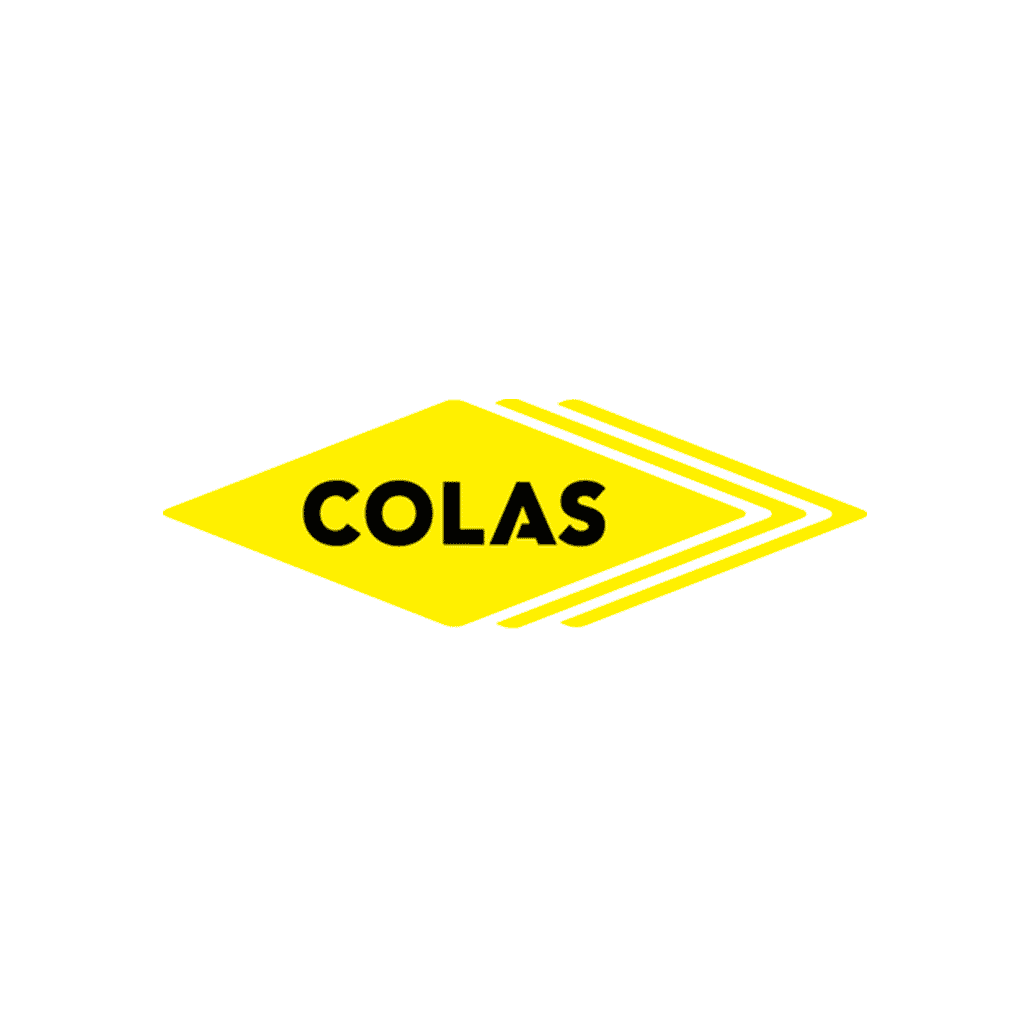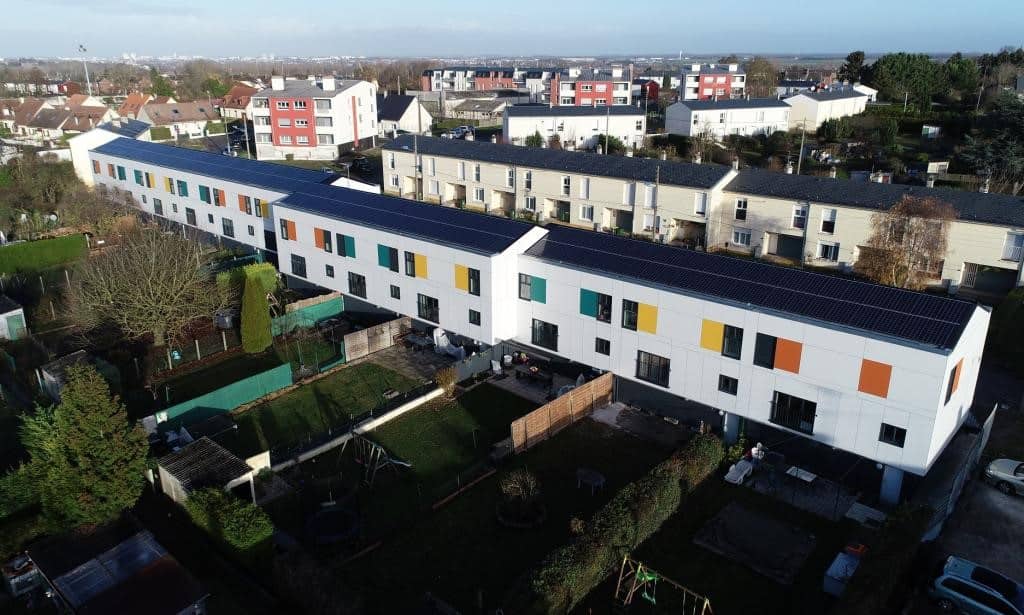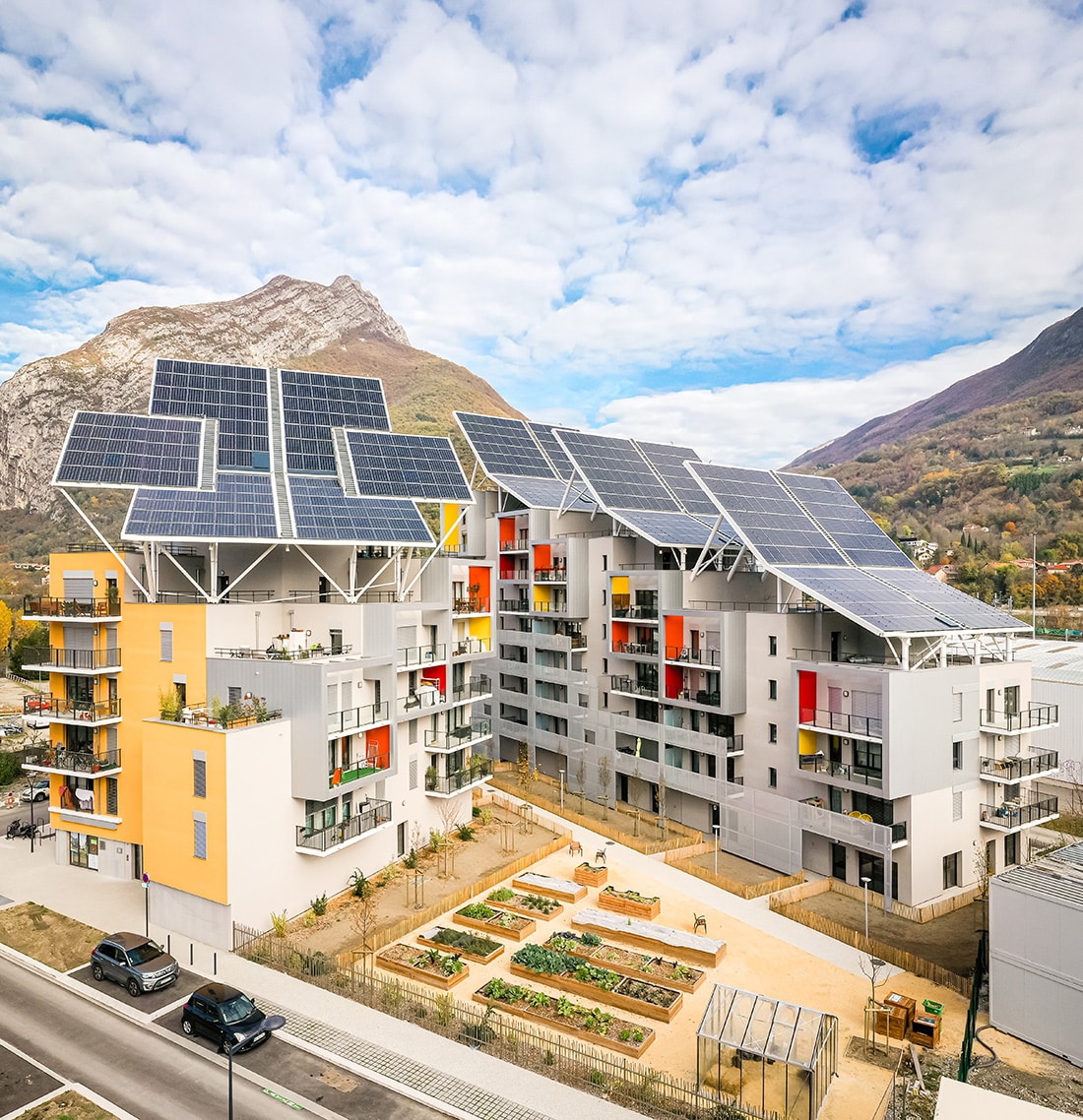
Sensations project: construction of the first 100% wood structure program
With a level of wood construction never seen before in France, Bouygues Immobilier’s SENSATIONS construction program stands out for its ability to meet…

Goal 1 - Reduce the carbon footprint of this type of pavement:
- By using plant-based raw materials instead of bitumen, a non-renewable petroleum-based resource,
- By reducing the energy consumption of the pavement manufacturing process, thanks to lower temperatures than for the production of traditional asphalt mixes.
Goal 2 - Promote solutions with light and/or natural colors to accentuate the albedo effect and, thereby, combat urban heat islands.
As a global player in the construction and maintenance of transport infrastructure, Colas is committed to providing ever-more effective products and to meeting the growing expectations of road users, residents and society at large. These needs include improved living conditions, comfort, safety and environmental protection.
With Vegecol, Colas is able to provide an environmentally-friendly alternative to asphalt mixes, by replacing non-renewable petroleum-based bitumen with a binder made mainly from plant-based raw materials.
What’s more, this binder’s translucency allows the aggregate’s natural color to show through, which makes for aesthetically pleasing cycling paths, sidewalks and urban development projects. Vegecol proves ideal for improving various living environments.
This product is part of the Colas Group’s pledge to lower carbon emissions, which includes ambitious targets in line with the Paris Agreement: reducing the Group’s direct greenhouse gas emissions (Scopes 1 and 2) by 30% and its indirect upstream emissions (Scope 3a) by 30% by 2030.
on which the project has a significant impact
Scope 1 – Decrease in plants’ fossil fuel consumption
Quantities :
Scope 3 – Bitumen and colorable synthetic binders replaced with plant-based VEGECOL, which has a much smaller carbon footprint
Quantities :
In the current market, clear asphalt mixes with synthetic petroleum-based binder have an emission factor of around +1500kg CO2eq/t. Bitumen (traditional binder) scores around +250kg CO2eq/t and Vegecol binder boasts an emission factor of -250kg CO2eq/t. Therefore, emissions are reduced by 1,750kg CO2eq for each ton of Vegecol used instead of the same amount of synthetic binder, and 500kg CO2eq for each ton of Vegecol used instead of bitumen.
In terms of energy, a natural gas burner consumes approximately 75 kWh per ton of conventional asphalt produced. Replacing bitumen by Vegecol binder leads to about 10% reduction in energy consumption. Given that gas has an emission factor of 214kg CO2eq/MWh HHV, the use of Vegecol reduces emissions by around 1.5kg CO2eq per ton of asphalt produced. When used instead of synthetic binder, Vegecol reduces emissions by around 3.0kg CO2eq per ton of asphalt produced.
Funds essentially went towards R&D. New industrial equipment or works are not required, given that the solution is compatible with Colas’ current capabilities.
2016
It will mainly be deployed on several sites in mainland France, followed by several sites abroad.
As far as the SDGs are concerned, Vegecol falls under Objective 13: measures to combat climate change.
Another notable benefit of Vegecol pavements is their ability to increase albedo levels compared to traditional dark-colored asphalt pavements.
This solution can technically be replicated on a global scale through local sourcing.
No partnerships.
Thierry Delcroix -
Colas Technical Research and Development Department
delcroix@campus.colas.fr

With a level of wood construction never seen before in France, Bouygues Immobilier’s SENSATIONS construction program stands out for its ability to meet…

The project consists of the massive rehabilitation of the Hôtel des Postes in Strasbourg to significantly reduce the building’s carbon footprint. Reducing the carbon footprint of the construction of a former…

Bouygues Construction is developing an innovative approach aimed at industrializing the energy renovation of housing. The first pilot project was launched in Longueau, with 12 housing…

Intencity, the building housing the Schneider Electric research and development campus, is one of the most efficient office buildings in the world …

Designed by Bouygues Construction’s R&D teams with the architectural office Valode & Pistre, ABC (Autonomous Building for Citizens) is the first autonomous building concept in France…

The “EcoStop” Start n Stop system designed by Colas Rail, a subsidiary of the Bouygues Group, stops the main diesel engine when the trains are parked or waiting, while maintaining comfort in the…
AFEP (Association of French large companies) is an association representing 111 of the largest companies operating in France. It participates in the public debate with the ambition to provide pragmatic answers in favour of the development of a competitive and sustainable French and European economy, conducive to the growth of all companies.